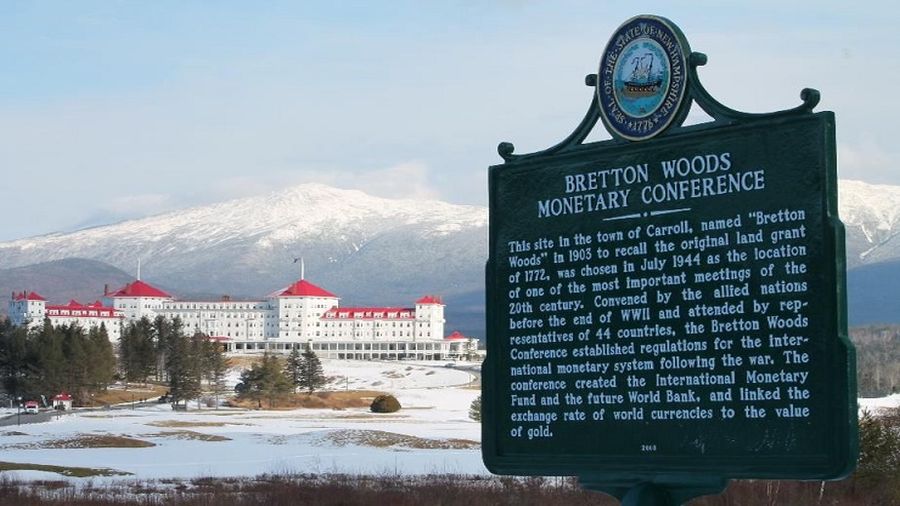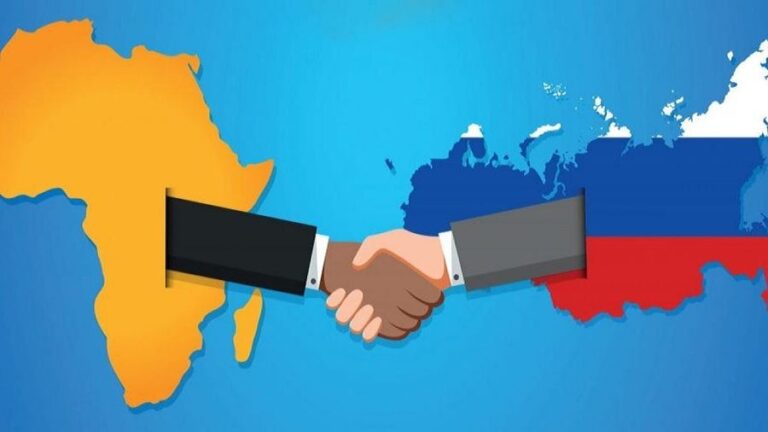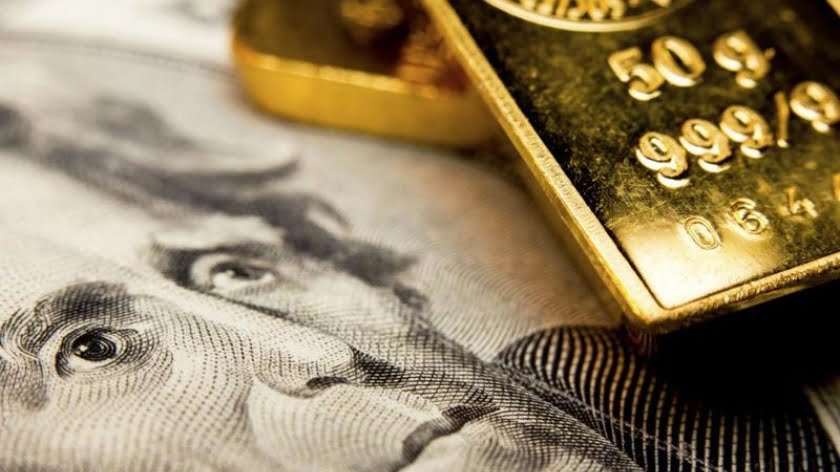Bretton Woods Entities Have No Way Out of the Woods!
I wonder just what per cent of the population even knows about Bretton Woods and its implications for the global system. What goes around comes around, and the US and its economic allies, under the guise of the IMF and World Bank, Bretton Woods Entities that emerged in the wake of World War Two, have long since become everything they claim to despise.
These entities were founded so as not to make the same policy and economic mistakes as were made in the aftermath of World War One, those which were the main cause of World War Two. They therefore sought to stabilise what was left of the European Economic Landscape, so that no country would fall so far behind the others that it could be manipulated by extreme populist leaders, or communists.
Since then however it has changed its agenda, and adopted one of economic control, political manipulation and subterfuge, with overtly political and not solely strategic goals. The economics which have led so many countries down the garden path of debt and currency collapse have been imposed on everyone so that those who have risen to the top, without democratic accountability, can avoid admitting they might be wrong, and therefore don’t have the qualifications, skills and intelligence politicians have been forced to believe they think they have.
The original idea was to achieve the stabilisation of markets, economies and society as a whole. In other words, it ignored the lessons of nineteenth-century liberalism, which ended up creating a class of people “more Liberal than Thou”, who pulled the ladder up behind them by saying that whoever didn’t profit from these broader opportunities must have something wrong them, rather than the system itself not being the answer to everything.
This is why “liberalisation” is still a mantra spouted by the crusaders who think they have all the answers. No one means by that that every Tom, Dick and Harry should really have the same opportunities in life, and the same access to the resources necessary to take advantage of them.
They mean shifting economic power from those who currently have it to chosen nominees who will support whatever programme the donors have in mind. How liberal this idea really is can be seen in the fact that this same process of shifting capital and power away from existing elites is exactly what got the junk bond king Michael Milken put in jail, when the same practices continue daily as long as they [such crimes] benefit the established players.
In Your God We Don’t Trust
As a recent title so appropriately reflects, Bretton Woods II ended today, with China and much of the oil producing world beating the Americans at their own game. The dollar-for-oil monopoly was the lynchpin of Bretton Woods II’s stability, so it follows that Bretton Woods as we knew it just ended, and in turn Bretton Woods becomes redundant in terms of World Trade and Commercial Policy.
Put simply, the world is dumping the dollar, at least in terms of trading in oil, and this is impacting the US from many sides. The dollar as an instrument of US policy will lose its ability to run roughshod over friends and enemies alike, and will have to change its own fiscal policy to reflect the New World Order which has been imposed upon it out of the blue.
Sooner or later this was going to happen. This is what Jimmy Carter was really talking about back in the seventies, when he spent so much of his presidency droning on about energy crisis and how it was key to keeping inflation under control, often to his own disadvantage and demise.
Without stabilisation of energy resources and supply, “whoever can order the tune” can also control the economies of wherever countries they want—and a backlash results over time, with those disadvantaged by that process ganging together to turn the tables in what might be called the Liberia Effect: overthrow the corrupt system, and build a one equally corrupt but run by your own people.
Much of post-war history involves the sale of oil in dollars, and conflicts generated by that process. However this was made the overt driver of political and economic relations during the Nixon Administration, despite the chaos in foreign exchange markets that followed, and the resulting instability being made worse by the inflationary OPEC oil embargo of 1973-74.
In July 1974 the US Treasury Secretary William Simon and US Secretary of State Henry Kissinger made a top-secret flight to Riyadh to meet King Fahd. They offered a deal: sell Saudi oil exclusively for US dollars and buy US Treasuries with the proceeds, or we kill you, your entire family, and occupy the oil fields with the US military.
Strangely, this is the same Saudi Arabia now being lambasted for systematic human rights abuses which are held to be a product of its being Muslim and undemocratic. One doubts that Simon and Kissinger would appreciate being tarred with either brush, but the fact they thought such behaviour was alright for them tells you what you need to know about Bretton Woods mega players being more Liberal than Thou.
Now, quickly and without much fanfare, the petrodollar may soon be obsolete. It is ironic and hypocritical to reflect on how Biden “used sharp rhetoric to contrast himself with former President Donald Trump’s unreserved embrace of Saudi Arabia”, but is now going to be the main casualty of policies he previously supported.
What comes next is not hard to predict. The British Empire took a long time to catch up with colonial leaders it had branded as rebels, extremists and terrorists being embraced as statesmen on the world stage. The US is congenitally incapable of doing so, caught up in its own rhetoric, as only by promoting the concept of American Exceptionalism, and using it to justify whatever it says, can it even justify the country’s very existence when every other country, in one way another, has made the USA’s founding ideals its own, and done a better job of it.
Let’s Just Call it a Global Reset and Leave It At that!
We must not forget Biden’s failed trip to the Middle East prior to Midterm Elections, in which he came away embarrassed, empty handed, and humiliated on the world stage. The same is also holding true in other parts of the world, as the pack is scenting blood, even if it is not Biden’s own.
Biden’s trip to the region will soon reveal itself to be all for PR, and desperately trying to close ranks against Russia under the guise of diplomacy and the worldwide price of oil. It is what a US President is supposed to do to show they are awake, rather than what they need to do to achieve anything positive.
As the collapse of the Soviet bloc showed, the problem doesn’t come when people stop believing in you, but when they start thinking that everything you attack isn’t so bad after all. Then you have no room for manoeuvre, no way to construct a new paradigm. You can only go on clinging to the old certainties, because doing the opposite would be so hypocritical it would destroy you entirely.
In real democracies there is a gradual process of assimilating your enemies after they are retired or die off. It is routine to attack opposing parties by saying that they are no longer the decent, reasonable, principled party of old, when they were led by people who the speaker’s fellow travellers regarded as the Devil Incarnate at the time.
When you build your own economic and political dominance on saying that everyone else has something wrong with them, it is very difficult to then say that those countries once had the right idea but have now lost it. How can you have allowed that to happen, if the first idea was so good?
The US will now have to construct a new political paradigm which underpins a new economic paradigm it can present as a better option. One reason the Orthodox Church began gaining adherents in parts of Africa in the twentieth century was that it was not associated with the colonial powers, even though “foreign” in essence. Those churches which were have had to reset, but can’t claim their assumption of superiority doesn’t exist. The US is about to have the same problem on a much grander scale.
Reaping What Others Have Sown
What was predicted when this article was first was sent off for publishing has been confirmed. The position the US now finds itself in was demonstrated when, despite what Biden was saying, he was pictured engaging in embarrassing fist bumping with Saudi Crown Prince Mohammed bin Salman, who can be best described as a psychopathic killer – and had been by Biden himself in his earlier rhetoric.
The US doesn’t care about Saudi Arabia, must less like it, but has to defend its friends to defend itself, no matter how wrong they are. It has to pretend the old system is still worthy while it works out how it can play a part in the new one.
There are not many frontiers and unwavering friends left, other than former allies who are actually partners in business and crime. They are distancing themselves, and a New Order is evolving.
But it is not the New World Order envisioned by the US and its previous presidents. It is one in which no one automatically accepts that the US is right, and makes correct moral judgments. It is one in which everything the US doesn’t like is re-examined to see what good might be found in it.
Syncretism is another facet of a real democracy. Parties take the ideas of other parties and see how they can adapt them to their own way of thinking. Thus you get a case for any idea within any party, on the grounds there is an ideologically acceptable version of the concept somewhere, and the public can be made to believe in it.
Until their final day in power, the rulers of Communist Czechoslovakia insisted that they could accept this or that reform, but not the abandonment of socialism. They knew that was the one thing above all the Czech public wanted gone, and that they once could still have had a future by finding a capitalist narrative acceptable to the party, as in Hungary, Bulgaria and China, but that opportunity had gone because the people had investigated these questions before them, simply because the party had told them how bad they were, and the party could no longer control the debate.
The US has missed its own opportunity to move away from itself whilst retaining all the benefits of that self – the money, the glamour, the fundamental correctness and desirability of much of what it claims to believe in. Now anyone talking about alternatives will only be listened to if they are not the US, and traded with and trusted on the same basis.
Old Values, New Valuables
The price is now being paid for Biden’s earlier trip, which was most likely anti-Iran, anti-China, anti-Russian, as he sought allies in time of need, “birds of a feather who will flock together,” and to justify this for US domestic consumption. Now he needs Saudi Arabia and still friendly OPEC more than they need him, and whenever he talks to them, he shows it. This, in light of the European self-inflicted energy crisis, is a rude awakening for him and the Democratic Party.
In his Washington Post op-ed, “Why I am going to Saudi Arabia”, Biden laid out a position hostile to and contemptuous of both Saudi Arabia and Iran and their security concerns. To understand Biden’s modus operandi, and to judge the most appropriate way for Saudi Arabia to handle Biden’s visit and his seemingly pro-Iran policies, one needs something of a crystal ball and a sense of humour.
Biden claims in the article, which was obviously written for him, “I’ll pursue diplomacy intensely — including through face-to-face meetings — to achieve our goals.” This is somewhat ironic considering Biden’s previous track record at diplomacy—one of dismal failure and cozying up to backhanders in Ukraine and China, for starters.
The answer to Biden and the policies of his administration is loud and clear. OPEC’s outright refusal to defer oil production cuts until after the American midterm elections was a further sign that Saudi Arabia and OPEC+ no longer take orders from Washington.
Saudi Arabia went further by taking the unusual step of officially rejecting the US request for cuts in public, and did not even stabilise oil production but decreased it in face of a tight market, created mostly by US and European sanctions against Russia.
Saudi Arabia did not mince its words when it rejected as “not based on facts” American criticism of an OPEC+ decision back in October to cut its oil production target despite US objections. It explained that Washington’s request to delay the cut by a month would have had negative economic consequences.
Naturally, in light of political considerations, the White House said it presented the Saudis with an analysis that showed the cuts could hurt the world economy, and alleged that the Saudis pressured other OPEC members on a vote. But now the world has decided that what the US says is bad might be good, the analysis was bound to have the opposite effect, as the US still cannot face one fact: that the “world” means everybody else, not the eternal spread of the US opinion and hegemony.







